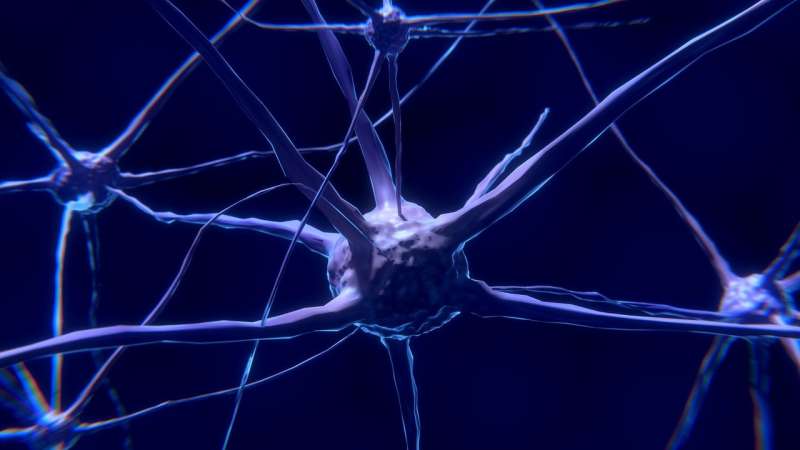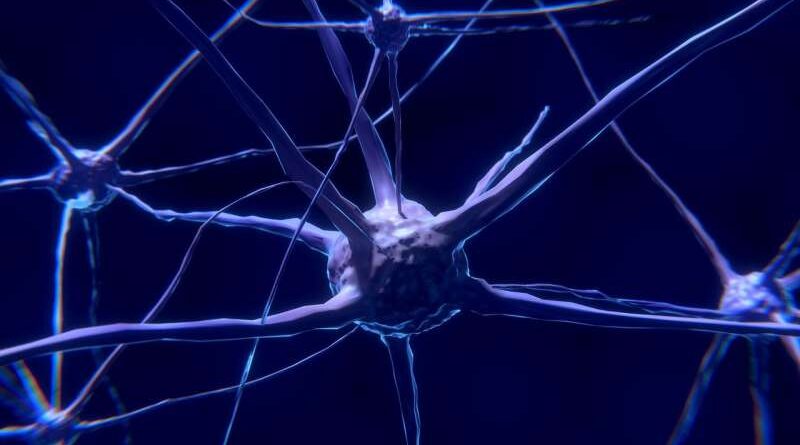Antiepileptic drugs show promise in reducing tobacco use in rats

Credit: CC0 Public Domain
Drug use disorders are notoriously difficult to treat, as it is difficult to interfere with the drug’s action on the brain’s reward pathway without interfering with the normal functioning of the pathway. In a study at the University of Arizona Health Sciences, researchers found a drug that reduces cocaine cravings in a murine model while maintaining brain pathways for stable glucose.
“For more than 20 years, researchers in the science of addiction have been trying to come up with treatments to reduce people’s tendency to want to use drugs. It is triggered by all the usual things that make people happy, like pizza , a chocolate chip cookie or calling a friend,” said Arthur Riegel, Ph.D.
He is a senior author on a paper published in The Biology of Addiction and a member of the U of A Health Sciences Comprehensive Center for Pain & Addiction.
“In this study, we were able to reduce the impact of cocaine without disrupting the normal impact of other substances in life.”
Riegel, an assistant professor in the U of A College of Medicine—Tucson’s Department of Pharmacology, led a team that tested retigabine, an antiepileptic drug, and its effect on cocaine craving and sugar in rats. They found that retigabine reduced drug-seeking behavior for cocaine but did not affect sugar cravings.
“I was surprised to see that retigabine treatment had no effect on people receiving sucrose, but it significantly reduced cocaine administration,” said Cody Diezel, co-first author on the paper. “I hope this study provides insight into new goals to reduce the symptoms associated with substance abuse and complement counseling and behavioral therapies.”
To conduct the study, the research team first allowed rats to self-administer cocaine and divided them into two groups: rats that preferred high doses of cocaine and became users they are strong; and rats that took a low dose of cocaine, which were called “recreational users.” Then, both groups were given retigabine.
They found that drug-seeking behavior was reduced in all rats with the greatest reduction among animals using low to moderate cocaine—the recreational users.
“Instead of waiting for our subjects to reach the end of slavery,” Riegel said, “this showed that we can catch them early and stop the practice.”
The rats were then allowed to self-administer sucrose, or sugar, which produces a reward in the brain similar to the way cocaine works. When the researchers gave these rats retigabine, they expected to see a reduction in sugar-seeking behavior as they had with cocaine.
Surprisingly, the mice continued to make their own sugar under the same conditions.
“It didn’t change that behavior at all,” Riegel said. “Retigabine appeared to moderate the reinforcing aspects of the addictive substance, cocaine, but left cravings for the natural substance, sugar, stable, healthy and normal.”
Retigabine has been approved by the Food and Drug Administration as a treatment for epilepsy, although it fell out of favor due to side effects of skin darkening. Today, it is being used in clinical trials for depression, and Riegel hopes to one day collaborate with clinical researchers to design a clinical trial for substance use disorder.
“We have medications that seem to reduce drug seeking, relapse and drug use. But retigabine is not going to be a magic pill that will make addiction go away,” Riegel said.
“Biopsychosocial intervention counseling is what raises the bar in treating substance abuse problems. Our goal is to come up with a treatment that can help stabilize the patient and make it easier to stop using drugs for a long time.”
Co-author Esteban Urena, a second-year medical student at Tucson College of Medicine, added, “I hope this study will help advance clinical research for cocaine use disorder. .I believe this research will eventually lead to new treatments that can work together with behavioral therapies to support people dealing with cocaine addiction and improve their chances of recovery.”
Additional information:
Esteban S. Urena et al, Kv7 channel opener retigabine reduces cocaine but not sucrose behavior in rats, The Biology of Addiction (2024). DOI: 10.1111/adb.13428
Offered by the University of Arizona
Excerpt: Epilepsy drug shows promise to reduce tobacco use in rats (2024, November 26) Retrieved November 26, 2024 from https://medicalxpress.com/news/2024-11 -epilepsy-medication-cocaine-rats.html
This document is subject to copyright. Except for any legitimate activity for the purpose of private study or research, no part may be reproduced without written permission. Content is provided for informational purposes only.
#Antiepileptic #drugs #show #promise #reducing #tobacco #rats
